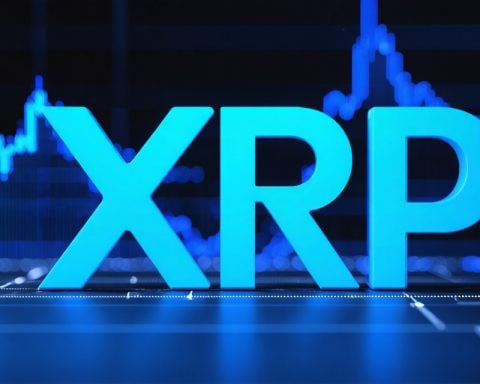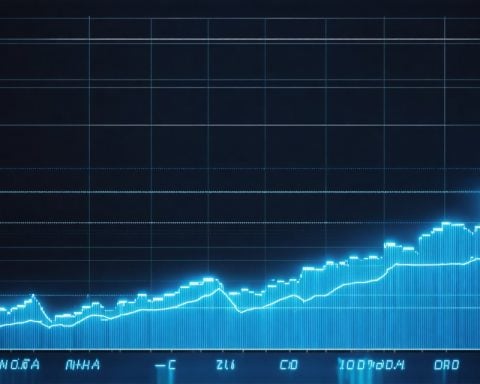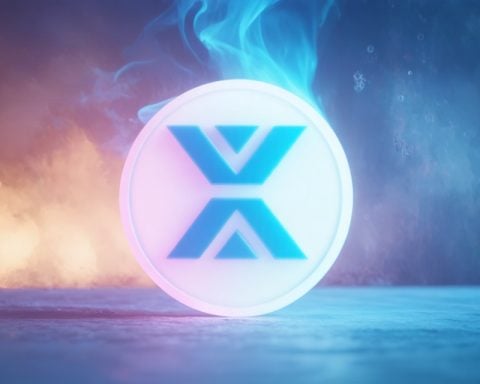- Tesla faces a significant decline in European sales, causing a notable drop in Elon Musk’s net worth by nearly $15 billion and an 8% decrease in the company’s stock.
- Elon Musk’s political activities, including support for controversial European factions, are believed to contribute to Tesla’s struggles in key markets like Germany and France.
- Concerns arise that Musk’s political involvement and managerial style may be diverting his attention from Tesla at a critical time, potentially jeopardizing its leading position in the electric vehicle market.
- Despite current challenges, analysts remain optimistic about Tesla’s brand strength, urging Musk to realign with Tesla’s core vision to navigate these turbulent times.
A storm brews over Tesla as the company’s European sales experiences a sharp decline, leaving investors and enthusiasts alike scratching their heads and Elon Musk reeling from a nearly $15 billion hit to his net worth. As tech stocks felt the tremors on Wall Street, Tesla shouldered the brunt of the impact with an 8% plunge, dragging its market cap below the coveted $1 trillion mark.
Tesla’s struggles in Europe appear intertwined with Elon Musk’s polarizing political venture, where his increasing influence in U.S. politics and support for controversial European factions have not gone unnoticed. January wasn’t kind to Tesla in Germany and France, where car registrations slowed to a crawl. Observers point to Musk’s backing of the far-right Alternative for Germany party as a potential factor alienating environmentally conscious European buyers.
Musk’s dual roles—at the helm of Tesla and as the force behind the Department of Government Efficiency (DOGE) in Trump’s administration—spark fears among investors. Critics say Musk is diverting attention from Tesla at a critical juncture, potentially weakening its stronghold in the electric car market as competitors circle. His demanding managerial practices, reminiscent of his overhaul of Twitter, have escalated tensions, fueling discontent among stakeholders and government officials.
While analysts note these missteps might clip Tesla’s wings temporarily, they assert the brand’s zeal remains intact. The overarching narrative is one of a distress call for Musk: refocus on the innovative Tesla vision that captivated millions before political excursions clouded its path. Is this just a bump in the road for the electric giant, or a sign of more challenging times ahead? Only time will tell.
Is Tesla’s European Sales Decline More Than Just a Temporary Setback?
How-To Steps & Life Hacks
Revitalizing Tesla’s Brand Image in Europe:
1. Reaffirm Brand Values: Tesla should emphasize its commitment to sustainability and innovation in marketing campaigns to reconnect with eco-conscious Europeans.
2. Local Engagement: Strengthen community relations with localized partnerships and environmental initiatives.
3. Adjust Pricing Strategy: Consider competitive pricing or offering incentives to boost sales and maintain market share against growing European EV competitors.
Real-World Use Cases
Tesla vehicles are known for their advanced electronic capabilities. Real-world applications include:
– Energy Efficiency: Using Tesla’s intelligent energy management systems to reduce carbon footprints in smart cities.
– Autonomous Driving Trials: Serving as test vehicles for ongoing research in autonomous driving technologies across Europe.
Market Forecasts & Industry Trends
Electric Vehicle (EV) sales in Europe are expected to grow significantly. According to a report by the International Energy Agency, EV sales could account for a third of total vehicle sales by 2030. Companies like Volkswagen and Renault are actively expanding their EV offerings, increasing competition for Tesla in the region.
Reviews & Comparisons
Tesla vs. Competitors (Volkswagen, Renault):
– Performance: Tesla’s acceleration and range typically outperform competitors such as VW’s ID.4.
– Technology: Tesla’s Autopilot is considered more advanced, but competitor offerings are catching up swiftly.
Controversies & Limitations
– Political Influence: Musk’s involvement in contentious political activities may harm Tesla’s brand in markets valuing neutrality.
– Production Delays: Continuing supply chain issues and production setbacks can impact delivery timelines and consumer confidence.
Features, Specs & Pricing
– Model Range: Tesla’s lineup includes Model S, X, 3, and Y, with ranges varying from 250 to over 370 miles.
– Pricing: In Europe, Tesla models can range from approximately €40,000 to over €100,000, depending on the model and features.
Security & Sustainability
Tesla vehicles include industry-leading security features like intrusion and tilt sensors. Sustainability is core to Tesla’s mission, with continuous improvements in battery recycling and renewable energy usage in manufacturing.
Insights & Predictions
Analysts predict Tesla will need to recalibrate its strategies. The focus should return to product innovation and customer service, rather than political engagements. There’s optimism that demand will recover as Musk realigns his focus.
Tutorials & Compatibility
Tesla continuously rolls out software updates that enhance vehicle performance, making models more future-proof compared to static competitors. Ensuring software compatibility across older models has been Tesla’s hallmark.
Pros & Cons Overview
Pros:
– Cutting-edge technology and innovation.
– Strong brand recognition and loyalty.
Cons:
– Political controversies potentially alienating key customers.
– Increasing competition in the EV market.
Actionable Recommendations
– Tesla should invest in research and development to cement its technical advantage.
– Customer satisfaction initiatives can help rebuild trust and relationships in Europe.
– Neutrality in non-core business matters could protect the brand’s reputation.
For more information, visit Tesla’s official homepage – Tesla.
Ensuring Tesla’s future success depends on striking a balance between innovation lead, customer engagement, and neutrality in potentially divisive topics.


















